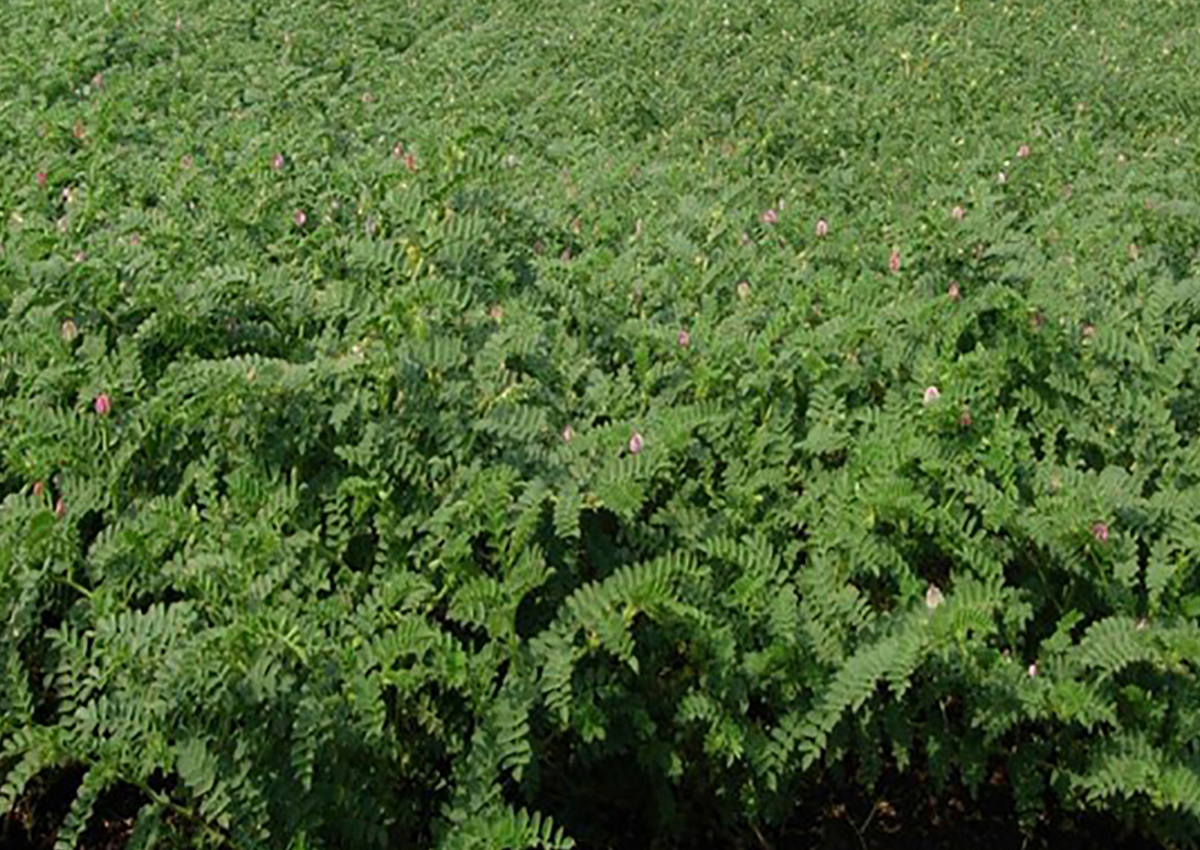
Genomics-Assisted Breeding Delivers Two Improved Chickpea Varieties in Record Time
October 16, 2019| |
Two new chickpea varieties developed in record time through genomics-assisted breeding with drought tolerance and disease resistance are set to be launched in India. All India Coordinated Research Project (AICRP) for Chickpea identified two desi chickpea (Bengal chana) varieties, ‘Pusa 10216' and ‘MABC-WR-SA-1', which were developed by the Indian Council of Agricultural Research (ICAR)-ICAR-Indian Agricultural Research Institute (IARI) and University of Agricultural Sciences (UAS) in Raichur, Karnataka, respectively, in collaboration with the International Crops Research Institute for the Semi-Arid Tropics (ICRISAT).
Pusa (BMG) 10216 was developed at IARI in collaboration with ICRISAT. Using their extensive knowledge of the chickpea genome, Dr. Rajeev Varshney's team at ICRISAT was able to introgress drought tolerance into the chickpea variety Pusa 372 with genes from ICC 4958, a drought tolerant chickpea landrace. The result, Pusa 10216, is the first chickpea variety to have drought tolerance through molecular breeding, was developed in just four years. It showed 11.9% increase in yield over Pusa 372 during a two-year multi-location testing in drought conditions.
The other crop, MABC-WR-SA-1, was developed by inducing fusarium wilt resistance in Annigeri-1, a variety highly preferred by farmers in Karnataka. The source of resistance to fusarium wilt was WR315, a chickpea landrace. With 7% increased yield potential over Annigeri-1, this new variety is also being called Super Annigeri-1, and was developed by UAS-Raichur in collaboration with ICRISAT.
For more details, read the article in the ICRISAT website.
| |
You might also like:
- Global Team Sequences 429 Chickpea Lines from 45 Countries to Develop High-Yielding, Climate Resilient Crop
- ICRISAT and NRGene Make Chickpea and Pigeonpea Reference Genome Data Available
- Improving Chickpea with High Iron and Zinc Levels
Biotech Updates is a weekly newsletter of ISAAA, a not-for-profit organization. It is distributed for free to over 22,000 subscribers worldwide to inform them about the key developments in biosciences, especially in biotechnology. Your support will help us in our mission to feed the world with knowledge. You can help by donating as little as $10.
-
See more articles:
-
News from Around the World
- 14% of Global Food Goes to Waste, FAO Reports
- Study Reveals the Resilience of Rice to Floods
- Hornless Cattle Now Possible Thanks to Genome-editing
- FDA Approves Texas A&M's Ultra-Low Gossypol Cotton for Human and Animal Consumption
- Genomics-Assisted Breeding Delivers Two Improved Chickpea Varieties in Record Time
- Family of Crop Viruses Shown at High Resolution for the First Time
-
Research Highlights
- Plant Protein that Triggers Photoprotection Identified
- Genetically Engineered Plants Occur in Large Scale Naturally
-
Plant
- NAL8 Contributes to Leaf and Spikelet Development in Rice
- Large-scale Genomics for Wheat Improvement
-
Read the latest: - Biotech Updates (January 21, 2026)
- Gene Editing Supplement (January 28, 2026)
- Gene Drive Supplement (February 22, 2023)
-
Subscribe to BU: - Share
- Tweet

